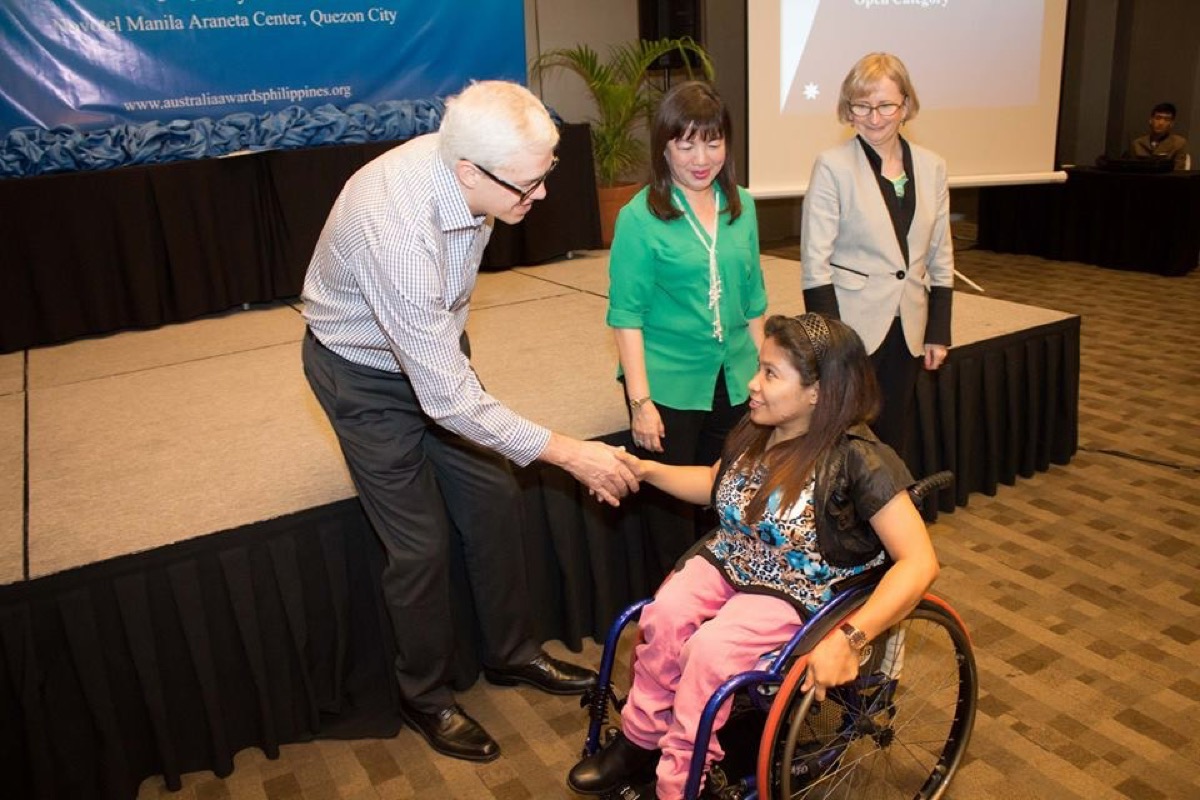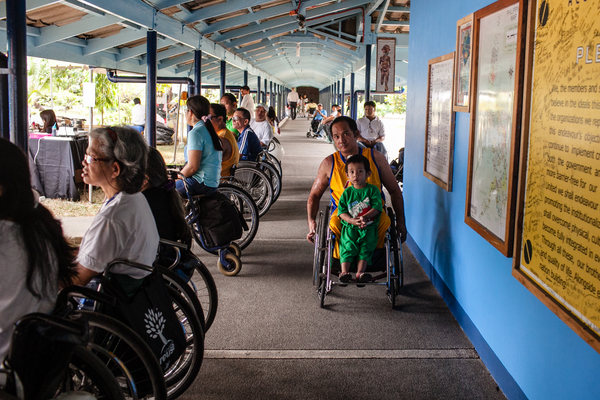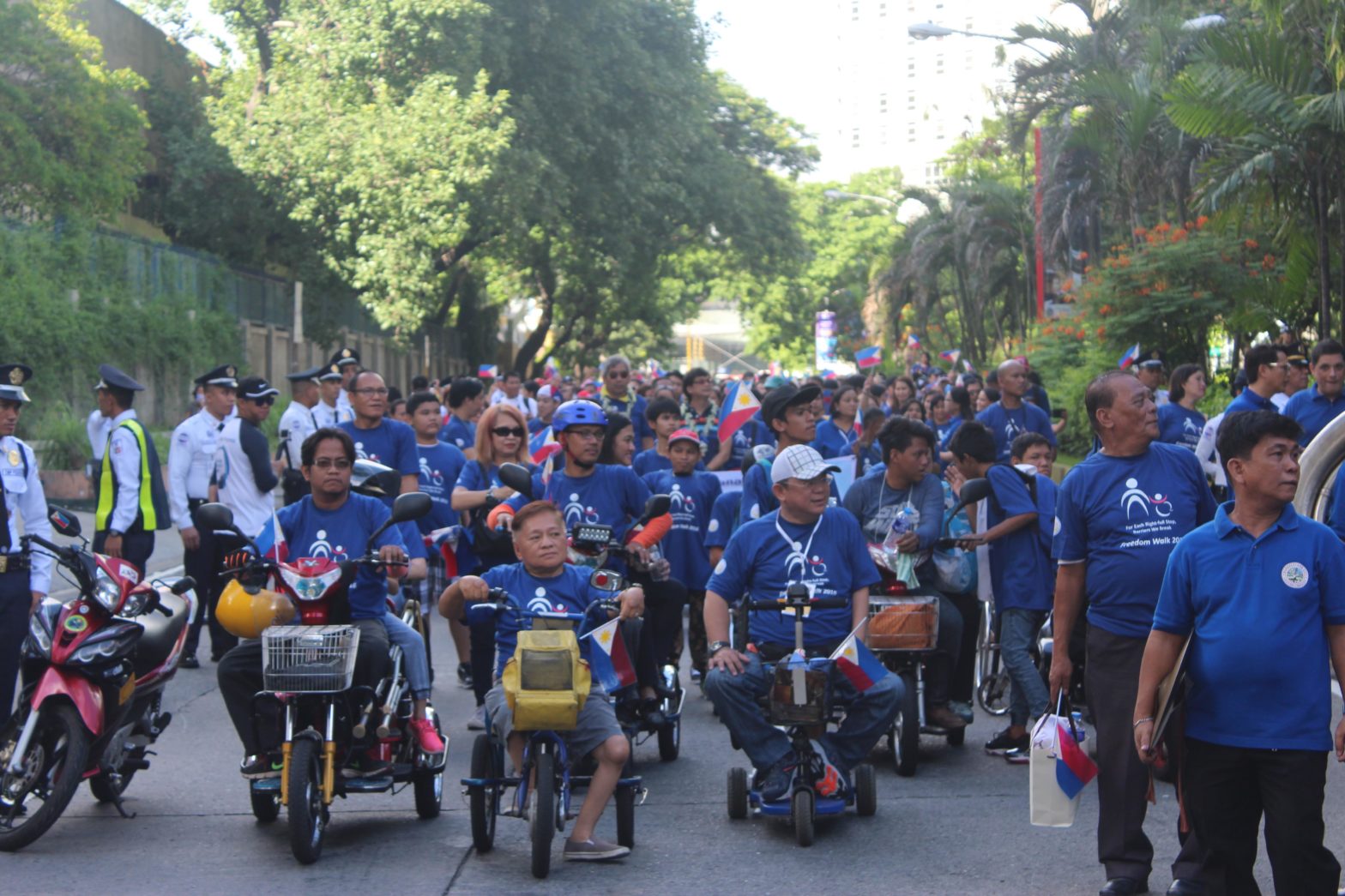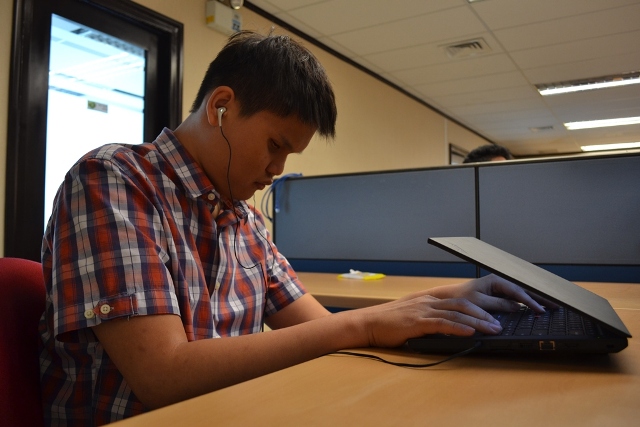By JAKE SORIANO
A record number of Filipino persons with disabilities (PWDs) have been granted scholarships this year to pursue graduate studies in Australia.
Four scholars – Ramon Apilado, Krissy Bisda, Eric Papas and Virginia Rabino – are set to complete master’s degrees at the University of Newcastle under the Australia Awards Scholarships (AAS), awarded by the Australian government to potential leaders in development.

“(We are) happy with the number,” said Milalin Javellana, director of the Philippines Australia Human Resource and Organisational Development Facility (PAHRODF), which administers the AAS program in the country.
“Before, we used to have one or two,” she said, explaining that the facility was “very purposive” in encouraging PWDs to apply.
“One of the actions we did was (PWDs) can apply even without the English proficiency (test results),” Javellana explained. “Because that’s one also of their issues. It costs so much.”
Standardized English language tests like the Test of English as a Foreign Language (TOEFL) and the International English Language Testing System (IELTS) could cost as much as P10,000.
“(PWDs) will only take it if (they) are selected. So that way, it’s not a financial burden,” she added.
A total of 60 Filipinos are AAS recipients this 2016, which also marks seven decades of bilateral relations between the Philippines and Australia.
The Australian government has committed to playing lead in global disability-inclusive development, through among others programs like the AAS. (Watch These videos will help you get disability right)
Its Department of Foreign Affairs and Trade (DFAT) has noted in its 2015-2020 disability strategy to improve the quality of lives of PWDs by fostering people-to-people links through the AAS.
AAS recipient Rabino, a wheelchair user who works at the Technical Cooperation Division of the National Council on Disability Affairs (NCDA), said she hopes her experience in Australia would help her implement a project on Web accessibility.
Web accessibility refers to designs that enable PWDs to use the Internet without being hindered by barriers.
“Ang mga pinaka-nahihirapan kasi dyan, mga (blind), hard of hearing, deaf (Blind, hard of hearing and deaf people most often have difficulties in accessing the Web),” Rabino said.
Common barriers for blind people include photos without corresponding “alt” descriptions, the absence of “skip” options that lead directly to the main content of a page, and image CAPTCHA; deaf persons meanwhile are unable to access video and audio content if these do not come with subtitles or transcripts.
“Baka may mga advanced technologies sa Australia, kung paano nila sinu-support yung needs (There may be advanced technologies in Australia on how to address the accessibility needs of PWDs),” she added.
As part of her re-entry action plan (REAP) upon graduation, Rabino said she intends to develop a guidebook on accessible information and resources for Filipino PWDs that will be used by libraries across the country.
The REAP is a unique feature of the AAS program in the Philippines where returning scholars apply what they have learned in Australia as a way of giving back to Filipino communities.
Javellana said the number of PWD scholars this year should hopefully serve as models for others who are interested in applying but still have doubts.
“The universities (in Australia) are well-prepared,” she said, adding that applicants should not hesitate in declaring their disability, in cases where these are non-manifest.
“Dito pa lang sa Pilipinas, tutulungan na kayo (You will be provided assistance even before you leave the Philippines),” Javellana said.
Some 1.4 million Filipinos have disabilities, results of the 2010 census of population show.
(Two VERA Files staff are recipients of the Australia Awards Scholarships: Daniel Abunales in 2014 and Jake Soriano in 2016.)



